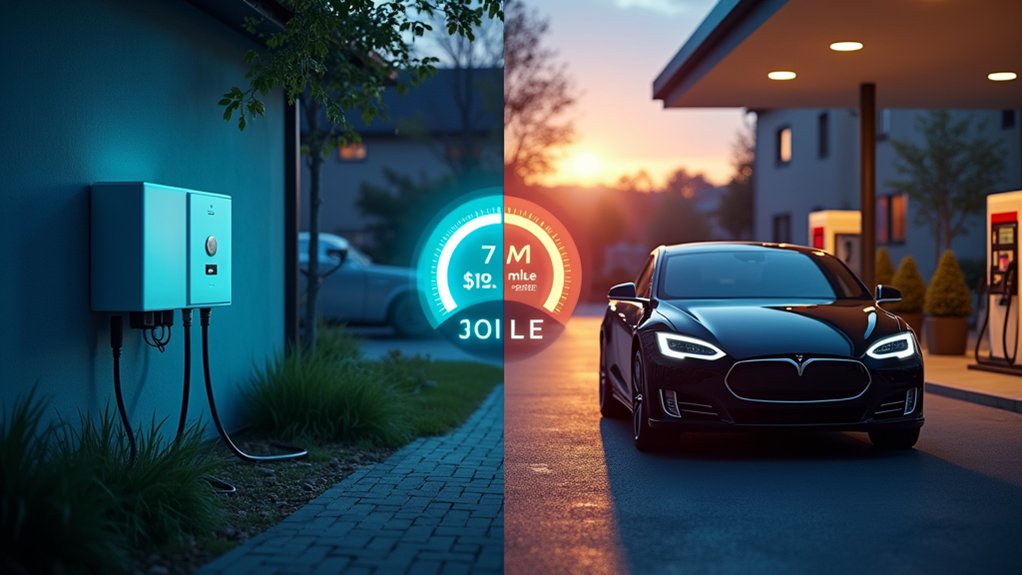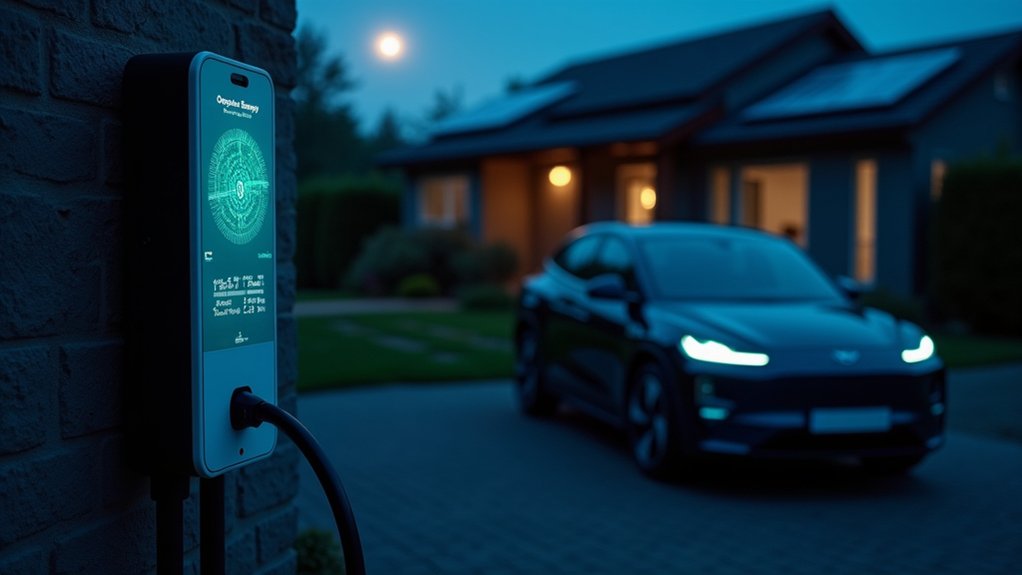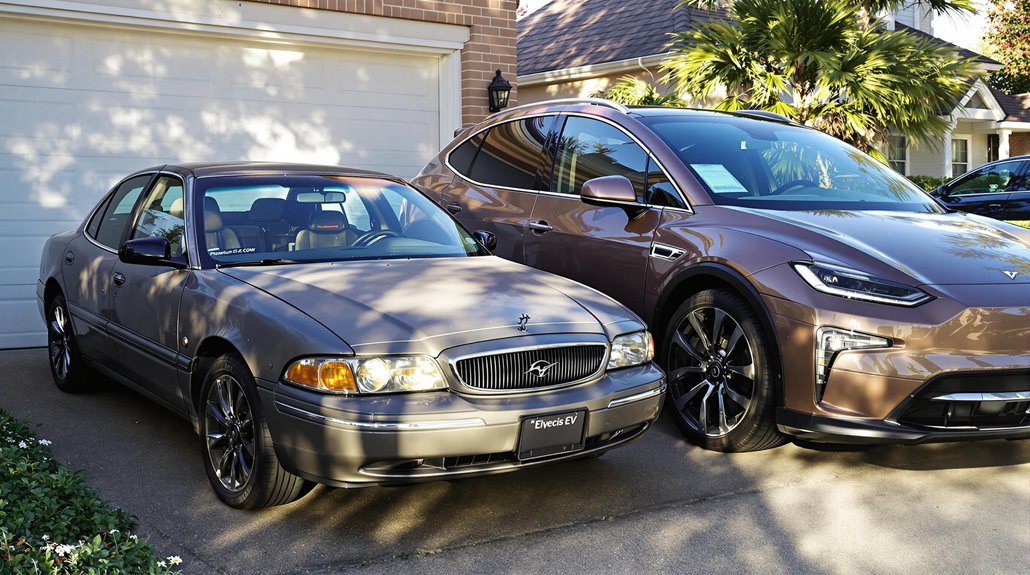As the automotive landscape undergoes a fundamental transformation, consumers are increasingly faced with the critical choice between electric and petrol-powered vehicles. The financial calculus of this decision reveals a compelling advantage for EV adopters, who typically spend just 7p per mile when charging at home compared to the 19-21p per mile expenditure of conventional combustion engines. This dramatic cost differential translates into potential annual savings between £1,000 and £1,500—a figure that shouldn’t be overlooked in today’s economic climate.
Today’s drivers face a stark financial reality: EVs cost 7p per mile versus 20p for petrol—potentially saving £1,500 annually.
The efficiency gap between these powertrains is equally striking. While petrol vehicles convert a mere 20-35% of fuel energy into actual forward motion, EVs deliver an impressive 60-80% efficiency rate. The engineering superiority continues with regenerative braking systems that recapture kinetic energy during deceleration, a feature particularly valuable in congested urban environments. I’ve observed that this technology provides substantive range benefits in stop-start traffic scenarios where conventional vehicles are at their least efficient. E-bikes represent a similar efficiency revolution, offering an ideal balance between human power and electric assistance with minimal energy consumption.
Maintenance economics further tip the scales toward electrification. Electric vehicles provide instant torque for a smoother and more responsive driving experience compared to gas-powered vehicles. With dramatically fewer moving parts—no timing belts, fuel injectors, or oil filters—electric vehicles require approximately half the lifetime maintenance expenditure of petrol counterparts. The average EV owner spends $4,600 on maintenance compared to $9,200 for conventional vehicles over their operational lifespan. Most electric car batteries are designed to last up to 20 years or 186,000 miles before needing replacement.
The refueling paradigm, however, presents trade-offs. Petrol vehicles offer unmatched convenience for immediate refueling, while EVs require more strategic energy management. Yet for daily commuters with home charging capabilities, waking up to a full “tank” each morning eliminates traditional fueling station visits entirely.
Environmental considerations add another dimension to the comparison. EVs produce zero tailpipe emissions during operation, though their total environmental impact hinges on electricity generation sources. Nonetheless, the absence of direct particulate matter and greenhouse gas emissions, coupled with virtually silent operation, confers undeniable urban livability benefits—allowing EV owners to drive through Ultra Low Emission Zones without additional fees.









